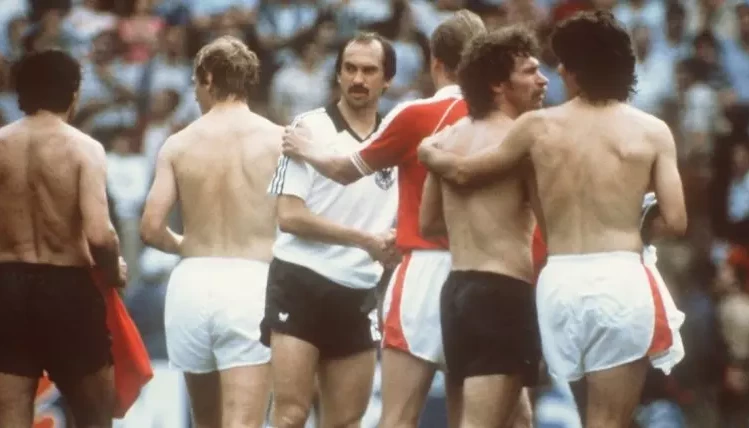FIFA World Cup: How match-fixing denied Algeria a qualifying chance in 1982
Final group stage matches are played simultaneously because of an incident known as 'Disgrace of Gijon' at the 1982 World Cup that cost Algeria the opportunity to qualify.
 The ‘Disgrace of Gijon’ was a match so awful it changed football forever.
The ‘Disgrace of Gijon’ was a match so awful it changed football forever.The 2-1 victory of Algeria over West Germany helped them get close to securing a spot in the knockout stage of the 1982 World Cup. However, an infamous match between Austria and West Germany robbed Algeria of their chance and changed the way World Cup is played.
The clash between Austria and West Germany kicked off on an aggressive note, with Horst Hrubesch scoring a goal for the West German side in the tenth minute. Yet, the flow of the match completely changed after the opening goal.
The two European teams decided to spend most of the game passing the ball amongst themselves instead of running and making tackles.
Experts and fans soon figured out what was happening. West Germany and Austria had realised that a narrow victory would mean that both sides could qualify at the cost of Algeria.
One announcer told fans to turn off their televisions and refused to speak for 30 minutes as 41,000 spectators watched players going through the motions of the game with a half-hearted effort at the event that came to be known as the 'Disgrace of Gijon'
The head of the Austrian FIFA delegation, Hans Tschak, said: "If 10,000 sons of the desert here in the stadium want to trigger a scandal because of this, it just goes to show that they have too few schools. Some sheikh comes out of an oasis, is allowed to get a sniff of World Cup air after 300 years and thinks he's entitled to open his gob."
Algeria were left irritated and filed complaints asking for the suspension of West Germany and Austria to FIFA. However, FIFA did nothing at the time, and West Germany eventually lost 3-1 to Italy in the championship match.
What did FIFA do to prevent future blunders?
FIFA decided to schedule the final two matches of every round-robin group stage during the same time slot. This ensures that the best teams advance to the next stage and Disgrace of the Gijon-like situations do not arise again.
If the final two matches are played at different times, the two teams competing in the last game might decide to tweak their plans to manipulate who advances to the knockout stage.
Therefore, FIFA have been following the tradition of same-time matches to ensure no one knows the final calculation before the games are over.
The rule is also applicable in the English Premier League, where the final ten clashes between all 20 teams occur simultaneously.
Editor's Picks
- 01
Brendon McCullum: England ready to be 'really brave' in team selection for India series
- 02
Diogo Jota inspires Liverpool surge as injuries fail to dampen Premier League lead
- 03
Cameron Norrie ready to go toe-to-toe with the big boys after stellar Australian Open run
- 04
Maxwel Cornet confident of scoring run after opening West Ham account